That whole Invisible Children/Kony 2012 campaign is the worst case of “what these people need is a honky” style of activism. It’s overtly simplistic, revolves more about the activists’ egos than about the supposed cause they’re supporting and it all looks a lot like a scam to get money out of idealistic but gullible people. That the director of the video is an Evangelical Christian fits with the m.o.; Evangelical Christians are masters of the fake charity.
Archives for 2012
Watson & Oliver
It’s been a long time since I’ve been enjoying an old skool sketch show as much as I’ve been enjoying Watson & Oliver. I hadn’t heard of either Lorna Watson or Ingrid Oliver before, but they’ve obviously been around for some time, as they’re quite good and work well together.
A lot of their humour is observational and depending on repetition, as in both the sketch above and below. I’ve known co-workers/volunteers like her below, while the caf sketch is only mildly funny at first, but having been repeated in succesive shows has only become funnier.
They’re also good at getting in character, as seen here in the second of their Kate and Wills sketches.
All in all not a bad way of ending a Monday night.
Charlemagne — Rosamond McKitterick
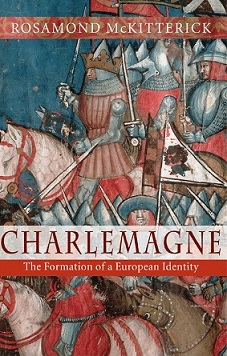
Charlemagne: the Formation of a European Identity
Rosamond McKitterick
460 pages including index
published in 2008
I knew Rosamond McKitterick from the volume in the Short Oxford History of Europe series she edited, which is why I picked up Charlemagne: the Formation of a European Identity from the library. Charlemagne himself has only relatively recently picked my interest, mostly through having read Emperor of the West a few years back. Interest in Charlemagne in general has rather picked up in the past decade, as the search for a common pan-European identity has taken on obvious political significance, what with the EU and all.
Which is where this comes in, as Rosamond McKitterick attempts to get back to contemporary sources to re-evaluate Charlemagne and his reign, without the interpretations later historians have given them. Her goal is to in this way provide a new critical understanding of what these sources tell us about the development of the Carolingian empire, its political identity and how these changed during Charlemagne’s reign. It makes Charlemagne a heavily text orientated history, as McKitterick examines the narrative representations of Charlemagne produced during his lifetime and shortly after. To be honest, at times this made it heavy going, especially when I read most of it during the morning and afternoon commute.
Five comfort reads
Five comics I can always turn to when I’m feeling down or unwell.
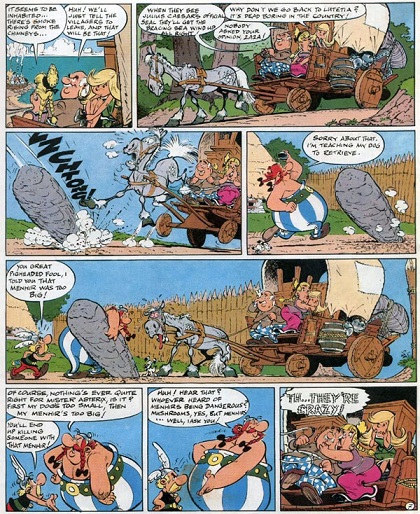
1. Asterix. Humour, adventure, incredibly lame puns and it takes the side of the barbarian resistance against the empire. What’s not too like?
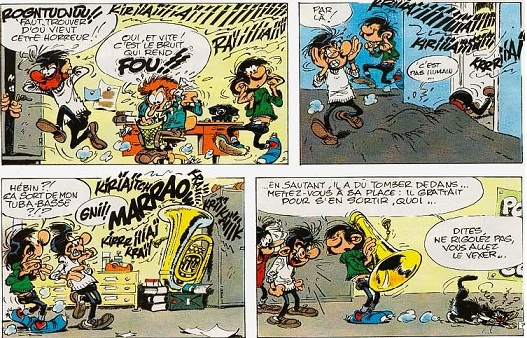
2. Gaston Lagaffe. The world’s worst office boy, who spends his entire day avoiding work, experimenting with new, horrible recipes (sardines in apricot jam being one favourite) feeding his equally horrible seagull, inventing new Heath Robinsonesque machines to do things for him he’s too lazy to do himself, or playing battleship with Jules-from-Smith’s-across-the-street over the phone, when Jules is in New York with his boss…. It’s no wonder Gaston never made it in the US, a country where people keep working even if they’re no longer paid.
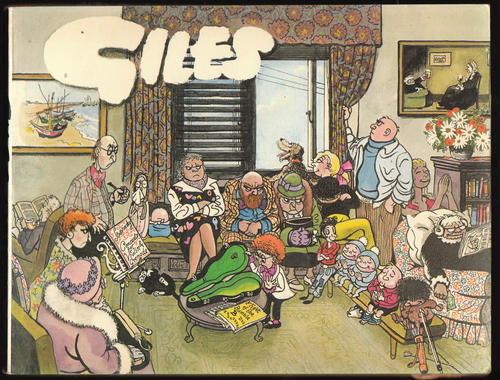
3. Giles annuals. A year’s worth of gentle satire about the issues of the day, as seen through an unforgettable cast of horrible grans, put-upon fathers, stoic mothers and way too clever kids, with walk-on parts for whichever celebrity that was in the news just then.
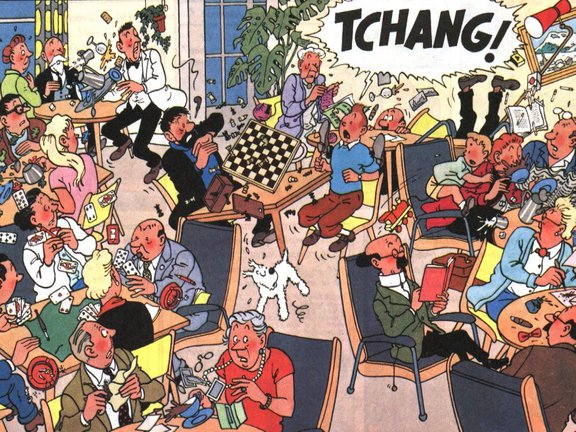
4. Tintin. The world’s most viriginial boy reporter and his much more interesting friends going on adventures around the world. Tintin makes the world cozy and orderly.
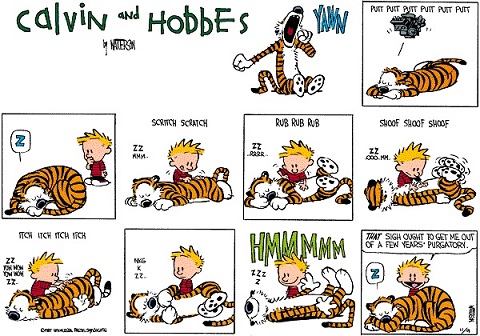
5. Calvin and Hobbes. It’s a magical world. Let’s go exploring.
No post today
Not feeling wonderfully well and have to pop to the loo every few minutes does not make for a considered post, sorry.